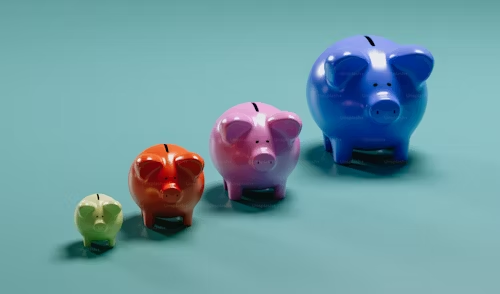Fixed Deposits (FDs) are one of the most popular investment options in India. They are known for their low risk and guaranteed returns. As an investor, can I have multiple FD accounts? You can also wonder whether it’s a good strategy for your financial goals. In this article, we’ll explore the pros and cons of having multiple fixed deposits. This can help you make informed decisions about your investments.
Understanding Multiple Fixed Deposits
Knowing multiple fixed deposits can help you make better investment choices. Here are some key points to consider when exploring this strategy:
What Does It Mean to Have Multiple FDs?
Can we have multiple FD accounts in same bank? Yes, having multiple fixed deposits means investing your money in more than one FD account. It can be either with the same bank or across different banks. This strategy allows you to spread your investments and potentially earn better returns.
Diversification and Laddering
The main reason to consider having multiple FDs is to diversify your investment portfolio and use a laddering strategy. Laddering involves investing in FDs with different maturity dates, which can help you maximize returns and ensure liquidity.
Let’s say you have ₹10 lahks to invest instead of putting the entire amount in a single FD. Then, you can divide it into four equal parts of ₹2.5 lakh each. Additionally, invest in FDs with varying maturity periods, such as 1, 2, 3, and 5 years. This way, you have access to funds at regular intervals without breaking the entire investment.
Pros of Having Multiple Fixed Deposits
Having multiple fixed deposits can provide various benefits for your investment strategy. Below are some key advantages to consider:
Better Returns Through Laddering
Invest in multiple FDs with different maturity dates. By this, you can take advantage of varying interest rates offered for different tenures. This laddering strategy allows you to earn better average returns. It is more effective than locking all your funds in a single FD for a longer period.
Enhanced Liquidity
Can I have multiple fixed deposits? Yes, you can. Having multiple FDs maturing at different times provides you with better liquidity. This approach eliminates the need to prematurely close a single large FD, which might incur penalties. As each FD matures, you have access to funds for your financial needs.
Reduced Interest Rate Risk
When you have multiple FDs, you can mitigate interest rate risk. If interest rates rise, you can reinvest the matured amounts at the new higher rates. Conversely, if rates fall, you can avoid locking all your funds at lower rates.
Diversification Across Banks
Investing in multiple banks helps you tap into better interest rates offered by different institutions. It spreads out the risk, ensuring that if one bank faces financial difficulties, your overall investment is not significantly impacted.
Suppose Bank A offers an interest rate of 6.5% on a 1-year FD, while Bank B offers 7% for the same tenure. By investing in both banks, you can earn a higher average return on your investment.
Cons of Having Multiple Fixed Deposits
While there are advantages to having multiple fixed deposits, there are also some drawbacks to consider. The following are some potential disadvantages:
Administrative Complexity
Managing multiple FDs can be more complex than handling a single one. You need to keep track of multiple accounts, maturity dates, and interest rates. This can be time-consuming and require more effort.
Minimum Deposit Requirements
Some banks have minimum deposit requirements for FDs, which can limit your ability to spread your investments across multiple accounts. You may need to invest a higher amount in each FD to meet these requirements.
Reduced Bulk Investment Benefits
Banks often offer higher interest rates for large FD amounts. By splitting your investment into multiple smaller FDs, you might miss out on these bulk investment benefits.
Let’s say a bank offers a 0.5% higher interest rate for FDs above ₹10 lakh. Then, invest ₹15 lakh in a single FD. This would earn you better returns compared to splitting the amount into three ₹5 lakh FDs.
Choosing the Right Fixed Deposit
When considering multiple fixed deposits, it’s essential to choose the right FD provider. Look for a reliable and trustworthy institution that offers competitive interest rates and flexible options. Airtel Finance provides attractive fixed deposit schemes. They also have high interest rates, minimal documentation, and an easy-to-use interest calculator to help you plan your investments.
Conclusion
Having multiple fixed deposits can be a smart investment strategy. It can offer benefits such as better returns through laddering, enhanced liquidity, reduced interest rate risk, and diversification across banks. However, it’s essential to consider the potential drawbacks, such as administrative complexity and reduced bulk investment benefits. Weigh the pros and cons and choose a reliable FD provider like Airtel Finance. With this, you can make informed decisions and maximize your investment returns. Use the Airtel Finance FD interest calculator to plan your investments and take a step towards financial security.
FAQs
1. How many fixed accounts can I have?
You can have as many fixed deposit accounts as you want. However, it’s crucial to manage them effectively and ensure that you meet the minimum deposit requirements for each account.
2. How many FDs can a person have?
There is no limit to the number of FDs a person can have. You can open multiple FD accounts with the same bank or across different banks. This depends on your investment goals and financial situation.
3. Can I open multiple FD accounts in the post office?
Yes, you can open multiple FD accounts in the post office. The post office offers various FD schemes with different tenures and interest rates. You can choose the ones that align with your investment objectives and open multiple accounts accordingly.
4. Is it good to have multiple FD accounts?
Having multiple FD accounts can be beneficial as it allows you to diversify your investments. Furthermore, you can earn better returns through laddering and reduce interest rate risk. However, it’s essential to consider the administrative complexity and minimum deposit requirements.
5. Can I transfer funds between my FD accounts?
No, fixed deposits are typically not designed for fund transfers between accounts. Once the money is deposited into an FD, it remains locked until maturity. However, you can always withdraw your funds from one FD (if needed) and create a new one. However, this may involve penalties for premature withdrawal.


 Get App
Get App  Airtel Store
Airtel Store  Login
Login 


